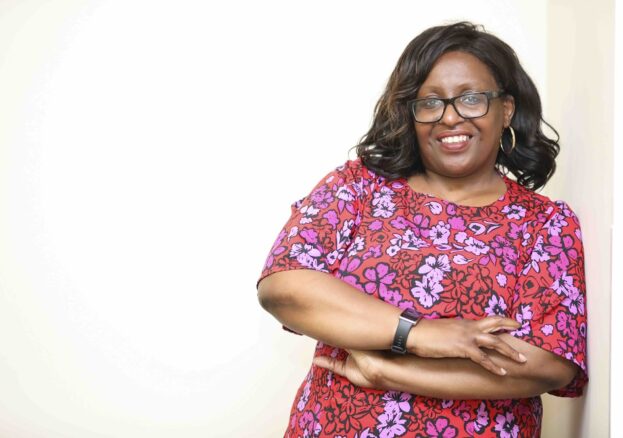
Whenever I am asked why I established a careers award that specifically celebrates Black talent, I am always transported to my early adolescence when the inspiration for my career in recruitment started. But this is no fairy tale. Like many people from marginalised backgrounds who have gone on to forge lives very different from the one in which they came, I channelled negative experiences into positive energy that fuelled my path towards a destiny few thought I could achieve.
Like any typical teenager, I fancied myself as a singer and dancer. But I also wanted to be a social worker. I loved the idea of helping people turn their lives around. But my class tutor said I had to lower my sights and strive for something more ‘achievable’ – like a job at the local factory.
The tutor’s feedback didn’t dampen my dreams but it did make me more determined to prove him wrong. From that point onwards I vowed that I would never allow anyone to define who I was or what I was capable of.
Undoubtedly, unconscious biases around the abilities and aptitudes of children of particular colour and class, like myself, play out in schools all the time, with some teachers inadvertently putting a glass ceiling on young aspirations, perhaps to save them from future disappointment. Of course, mine is just a personal anecdote but you don’t have to search very far to find data that corroborates the experience. Black children in developed countries like the UK are widely expected to fail. And because no one believes in them they, in turn, don’t believe in themselves.
I have since considered all the other countless students, past and present, who did not or will not pursue a particular career path because they were discouraged or told they didn’t have the ability by teachers, peers or other significant figures. I have spent all of my professional life rallying against such barriers set by those who inadvertently believe that I should ‘know my place’. There have been many instances in my life where this has been a message relayed to me, either covertly or overtly. Today, I run two successful recruitment businesses and a community group that helps young Black people manage their job search, engendering them with a confident and resilient mindset that empowers them to plan and pursue ambitious careers in what is often an intimidating and hostile process.
Addressing employment inequities doesn’t stop at helping young disadvantaged prospects from entering professions. The whole ecosystem needs addressing. Employers need support to become more inclusive organisations by having access to a diverse talent pool. They must also have measures in place to ensure talent from marginalised backgrounds can progress successfully in careers within their business. Becoming a genuinely fair employer means constantly reappraising diversity, equity and inclusion efforts; staying honest and curious about what is and isn’t working, and leaning into, often, difficult debate. Real change comes from uncomfortable places.
Whilst I help corporates navigate this journey, my biggest challenge is in addressing the negative mindset that often prevents young Black people from believing in themselves and going for jobs that they are more than capable of doing. The problem is that there is a huge relatable role model deficit. The typical entrepreneurs or role models that are heralded do not look, sound like or come from the same worlds as the people I represent. Very often, such role models are white, mainly male and privately educated. Of course, success came to them because they held something exceptional – a talent or an innovative idea. But they also had favourable circumstances that enabled them to flourish and, most importantly, harness a can-do mindset.
I felt that the homogenous narratives of success needed diversification. Young Black talent need to see role models that are relatable; who are succeeding on terms they can identify with. I launched The Black Talent Awards in 2022, with the valuable backing of Merlin Entertainments, Serco, Haleon and EDF Renewables UK to do precisely that. Last year’s winners included a headteacher who transformed a failing London state school in a deprived area into an Ofsted ‘Outstanding’.
Just as Black History Month provides an important opportunity to foster appreciation and understanding of Black heritage and culture in our society, awards that celebrate Black talent acknowledge the achievements of remarkable individuals who have succeeded in a world where the playing field still remains stubbornly sloped against them. We are too used to consuming a diet of negative narratives around Black underachievement. It’s time to celebrate the feats of those who have triumphed over adversity to demonstrate what is possible.
Denise Myers is CEO of recruitment firm Evenfields and founder of the Black Talent Awards, championing relatable professional role models and tackle employment discrimination.
